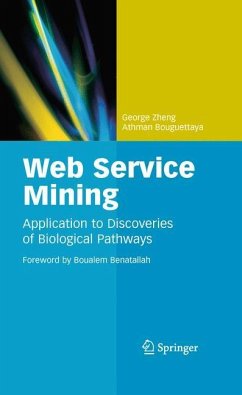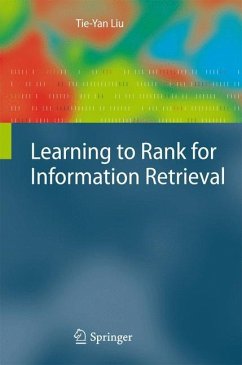
Evolving Connectionist Systems
The Knowledge Engineering Approach

PAYBACK Punkte
57 °P sammeln!
This second edition of the must-read work in the field presents generic computational models and techniques that can be used for the development of evolving, adaptive modeling systems, as well as new trends including computational neuro-genetic modeling and quantum information processing related to evolving systems. New applications, such as autonomous robots, adaptive artificial life systems and adaptive decision support systems are also covered.
Evolving Connectionist Systems is aimed at all those interested in developing and using intelligent computational models and systems to solve challenging real world problems in computer science, engineering, bioinformatics and neuroinformatics. The book challenges scientists and practitioners with open questions about future creation of new information models inspired by Nature.
This second edition includes new methods for adaptive, knowledge-based learning, such as online incremental feature selection, spiking neural networks, transductive neuro-fuzzy inference, adaptive data and model integration, cellular automata and artificial life systems, particle swarm optimisation, ensembles of evolving systems, and quantum inspired neural networks.
New applications to gene and protein interaction modelling, brain data analysis and brain model creation, computational neuro-genetic modelling, adaptive speech, image and multimodal recognition, language modelling, adaptive robotics, modelling dynamic financial and socio-economic systems, and ecological modelling, are covered.
An important new feature of the book is the attempt to connect different structural and functional levels of a complex, intelligent system, looking for inspiration from functional relationships in natural systems, such as the genetic and the brain activity.
Overall, the book is more about problem solving and intelligent systems, than about mathematical proofs of theoretical models. Additional resources for practical model validation and system creation are attached as programs in the Appendix. Data, programs, colour figures and .ppt slides are available from: http://www.kedri.info/ and http://www.theneucom.com.
"This book is an important update on the first edition, taking account of exciting new developments in adaptive evolving systems. It is a very important book,and Nik should be congratulated on letting his enthusiasm shine through, but at the same time keeping his expertise as the ultimate guide. A must for all in the field!"
Professor John G Taylor, King's College London
"This second edition provides fully integrated, up-to-date support for knowledge-based computing in a broad range of applications by students and professionals".
Professor Walter J Freeman,University of California at Berkeley
This second edition includes new methods for adaptive, knowledge-based learning, such as online incremental feature selection, spiking neural networks, transductive neuro-fuzzy inference, adaptive data and model integration, cellular automata and artificial life systems, particle swarm optimisation, ensembles of evolving systems, and quantum inspired neural networks.
New applications to gene and protein interaction modelling, brain data analysis and brain model creation, computational neuro-genetic modelling, adaptive speech, image and multimodal recognition, language modelling, adaptive robotics, modelling dynamic financial and socio-economic systems, and ecological modelling, are covered.
An important new feature of the book is the attempt to connect different structural and functional levels of a complex, intelligent system, looking for inspiration from functional relationships in natural systems, such as the genetic and the brain activity.
Overall, the book is more about problem solving and intelligent systems, than about mathematical proofs of theoretical models. Additional resources for practical model validation and system creation are attached as programs in the Appendix. Data, programs, colour figures and .ppt slides are available from: http://www.kedri.info/ and http://www.theneucom.com.
"This book is an important update on the first edition, taking account of exciting new developments in adaptive evolving systems. It is a very important book,and Nik should be congratulated on letting his enthusiasm shine through, but at the same time keeping his expertise as the ultimate guide. A must for all in the field!"
Professor John G Taylor, King's College London
"This second edition provides fully integrated, up-to-date support for knowledge-based computing in a broad range of applications by students and professionals".
Professor Walter J Freeman,University of California at Berkeley














